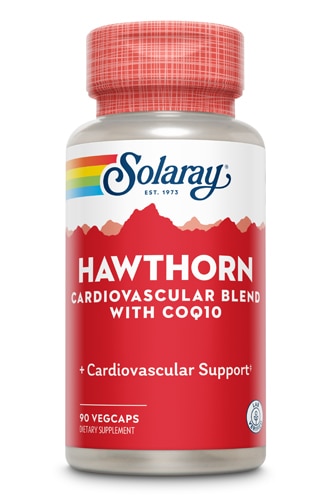[vc_row][vc_column][vc_column_text]A
lack of sleep can leave you listless and yawning, but it also masks a more serious danger: Insufficient sleep has been linked to a higher risk of heart issues.
Failing to get good-quality slumber may result in a number of health conditions that are tough on your ticker.
In addition, those who regularly get meager amounts of sleep are at increased risk of cardiovascular events, such as a heart attack.

The link between inadequate rest and a higher risk of heart issues is a reminder of how important it is to get quality sleep.
“Sufficient sleep has emerged as the foundation of health and wellness,” says Terry Cralle, a registered nurse, clinical sleep educator and spokesperson for the
Better Sleep Council.
How sleep impacts heart health
Research has shown that inadequate sleep may contribute to several health conditions known to endanger heart health. They include:
- High blood pressure
- Elevated cholesterol
- Atherosclerosis, which is the buildup of plaque in the arteries
Other conditions linked to inadequate sleep that threaten the heart include Type 2 diabetes, obesity and
inflammation.
“Inflammation can contribute to the development of heart disease, as well as stroke, diabetes, cancer and Alzheimer’s disease,” Cralle says.
Some people who struggle to get adequate sleep may have untreated sleep disorders, such as sleep apnea. “Sleep apnea occurs when the airway becomes blocked repeatedly during sleep,” Cralle says.
The result is pauses in breathing that can impact the amount of oxygen the body gets. That sets the stage for health problems such as high blood pressure, heart attack and stroke.
Insomnia – which typically refers to trouble falling sleep, staying asleep, or waking too early and not being able to fall back asleep – also is linked to inflammation, high blood pressure and heart disease, Cralle says.
The American Heart Association notes that folks with sleeping disorders such as sleep apnea and insomnia also are much more likely than the general public to be
diagnosed with heart arrhythmias, plaque buildup, heart failure and coronary artery disease.
A lack of sleep at night can also lead to unhealthy habits during the day that are detrimental to your heart, Cralle says. These include:
- Making unhealthy food choices
- Experiencing higher levels of stress
- Finding yourself with less energy and motivation to be physically active
The importance of getting adequate amounts of sleep
About 1 in 3 U.S. adults do not get enough sleep every night, according to the Centers for Disease Control and Prevention.
“The majority of adults require seven to nine hours (of sleep) per night,” Cralle says.
Fail to get this much sleep, and your body will be more vulnerable to developing issues that can impact the health of your heart and other parts of your body.
“Consistent sleep on a regular basis allows your body and brain to get the restorative break it needs,” Cralle says.
In fact, those who do not get the sleep they require – especially as a result of untreated sleep disorders such as sleep apnea and insomnia – “have a shorter life expectancy compared to their well-rested counterparts,” Cralle says.
Cralle notes that
protecting heart health often is viewed in terms of improving diet and increasing exercise. However, she believes “it is time to reframe” how we look at sleep in relation to diet and exercise.
“You are much more likely to eat a healthy diet and be more motivated to exercise when you are getting sufficient sleep,” she says. “How many people do you know that don’t meet their diet and exercise goals? It’s because they are not getting enough sleep.”
Improving the quality of your sleep
Because proper rest is so important to good health, Cralle urges people to prioritize sleep.
She notes that those who are not well-rested see a dip in their ability to focus, solve problems and communicate.
“Be unapologetic for your need for sleep,” she says. “It’s a biological need, you know?”
Cralle urges you to set aside time for sleep regardless of what else is happening in your life. “Schedule your sleep time, and protect it,” she says. “Everything else comes after sleep.”
Also, create a sleep routine that works for you. Doing so allows your mind and body to transition from wake to sleep. “Grown-ups need bedtime routines, just like kids do,” she says.
For example, it is important to have consistent bed and wake times that allow for sufficient sleep, Cralle says.
Also, she urges you to invest in a new, comfortable sleep surface at least every eight to 10 years, and to invest in pillows at least every two years.
The CDC suggests additional tips for
getting more and better-quality sleep. They include:
- Making sure your bedroom is dark and quiet, and that the room’s temperature is conducive to sleep
- Keeping all electronic devices out of the bedroom
- Avoiding large meals and caffeinated and alcoholic beverages shortly before bedtime
- Getting exercise during the day, which has been linked to better sleep at night
The key to getting good sleep is to avoid overthinking things. “Don’t try to fall asleep,” she says. “Instead, the goal is simply to relax. Sleep will follow.”
If you find your mind racing the moment your head hits the pillow, Cralle suggests writing down a “to do” list or a “to worry about” list.
“Putting this all down on paper will help make it all look more manageable,” she says.
If you continue to have serious issues with your sleep, it might be time to get screened for a sleep disorder.
Whatever approach you take, make sure sleep is a priority and that you are doing what you can to improve the quality of your sleep, Cralle says.
“Don’t trade sleep hours for waking hours in an effort to get more done,” she says. “We do more and do it better when we are well-rested.”
[/vc_column_text][/vc_column][/vc_row][vc_row][vc_column][vc_text_separator title="Featured Products" border_width="2"][vc_row_inner equal_height="yes" content_placement="middle" gap="35"][vc_column_inner width="1/3"][vc_single_image image="164996" img_size="full" alignment="center" onclick="custom_link" img_link_target="_blank" css=".vc_custom_1676932655267{padding-right: 7% !important;padding-left: 7% !important;}" link="https://www.vitacost.com/tazo-caffeine-free-dream-herbal-tea"][/vc_column_inner][vc_column_inner width="1/3"][vc_single_image image="164995" img_size="full" alignment="center" onclick="custom_link" img_link_target="_blank" css=".vc_custom_1676932674511{padding-right: 7% !important;padding-left: 7% !important;}" link="https://www.vitacost.com/gaia-herbs-sound-sleep-120-vegan-liquid-phyto-caps"][/vc_column_inner][vc_column_inner width="1/3"][vc_single_image image="164997" img_size="full" alignment="center" onclick="custom_link" img_link_target="_blank" css=".vc_custom_1676932692255{padding-right: 7% !important;padding-left: 7% !important;}" link="https://www.vitacost.com/cymbiotika-heart-health-with-coq10"][/vc_column_inner][/vc_row_inner][/vc_column][/vc_row]
 The link between inadequate rest and a higher risk of heart issues is a reminder of how important it is to get quality sleep.
“Sufficient sleep has emerged as the foundation of health and wellness,” says Terry Cralle, a registered nurse, clinical sleep educator and spokesperson for the Better Sleep Council.
The link between inadequate rest and a higher risk of heart issues is a reminder of how important it is to get quality sleep.
“Sufficient sleep has emerged as the foundation of health and wellness,” says Terry Cralle, a registered nurse, clinical sleep educator and spokesperson for the Better Sleep Council.



